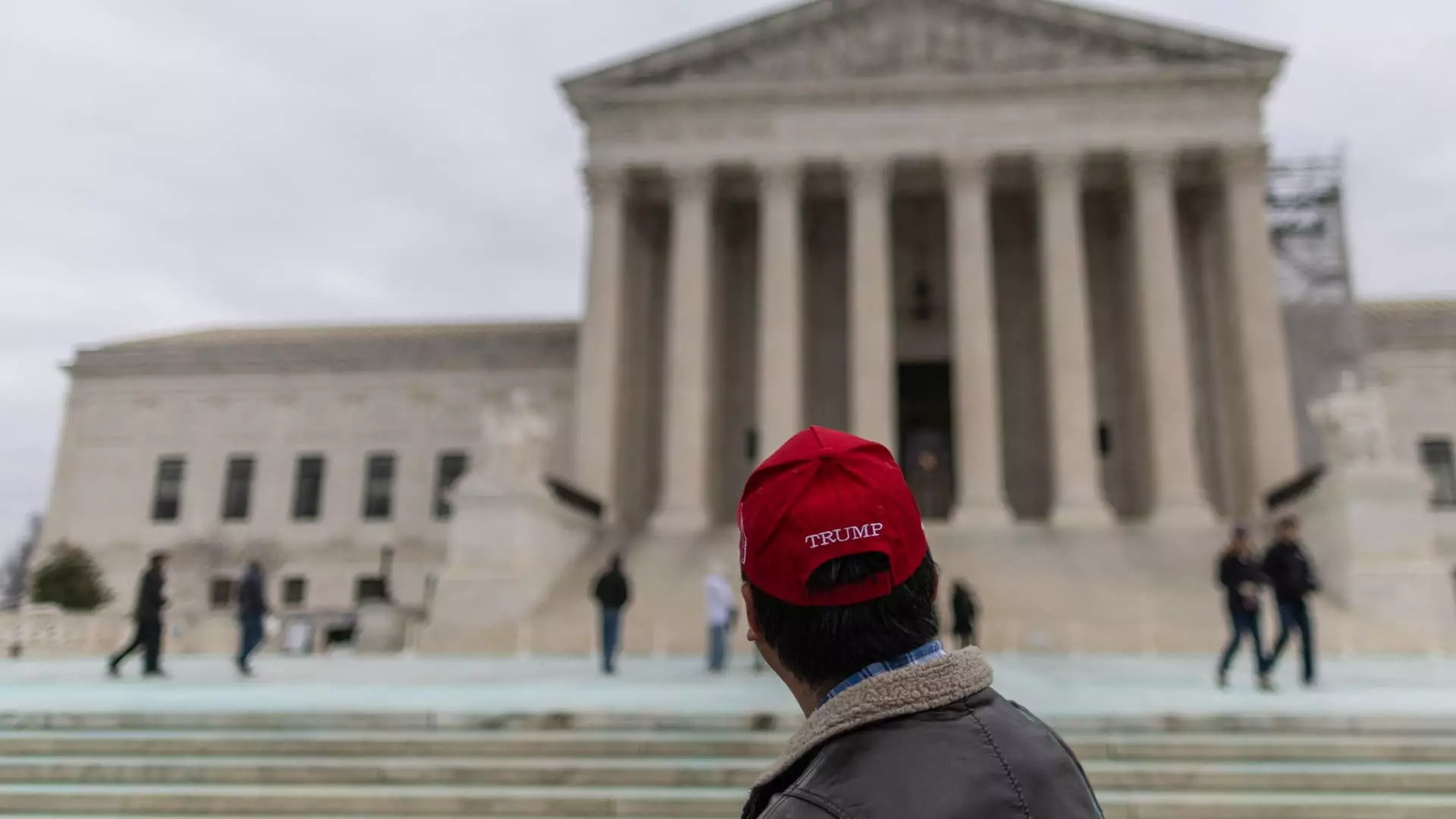The Trump administration’s approach to governance has often been characterized by aggressive attempts to reshape federal institutions to align with its political agenda. A notable example of this is its recent appeal to the Supreme Court for permission to dismiss Hampton Dellinger, the head of the Office of Special Counsel (OSC), which plays a crucial role in safeguarding government whistleblowers. This move represents not just a legal maneuver but also a broader ideological battle over the power dynamics within the federal government.
Whistleblower protections are designed to ensure that individuals who report misconduct within government agencies can do so without fear of retaliation. The OSC is pivotal in this framework, providing legal safeguards to federal employees who expose wrongdoing, thus contributing to government accountability and transparency. Dellinger’s reinstatement by a federal judge highlights ongoing tensions regarding the balance of power between the executive branch and independent oversight agencies. As the Trump administration seeks to overturn this federal ruling, it raises significant questions about the administration’s commitment to protecting civil service mechanisms that are established to prevent abuses of power.
The legal backdrop to this case is complex, involving a recent appeal made by the Justice Department to the Supreme Court that aims to challenge a lower court’s decision to reinstate Dellinger. The administration argues that his temporary reinstatement constitutes an infringement on executive authority, reflecting a prevailing sentiment that the presidency should maintain expansive power over administrative appointments and dismissals. This raises critical concerns about the potential deterioration of checks and balances, particularly in an era marked by heightened partisanship and scrutiny of government practices.
Dellinger contends that the law stipulates he can only be dismissed for legitimate performance issues, a standard that the administration has failed to meet in its communications regarding his removal. Their argument for Dellinger’s dismissal seems to be more about political expediency than about adhering to established legal standards. This situation reflects a troubling trend in which political motivations may override the rule of law, pressing against the very foundations of civil service protections intended to ensure nonpartisan governance.
The Supreme Court’s response to this appeal could set a significant legal precedent. Given that the court is predominantly conservative, its ruling may resonate deeply within the political landscape, potentially empowering executive authority in ways that could diminish the autonomy of independent agencies like the OSC. On the other hand, a decision to uphold Dellinger’s reinstatement could reaffirm the importance of whistleblower protections, sending a clear message that even in politically charged environments, such safeguards must be respected.
The implications extend beyond the immediate case, foreshadowing the future of federal governance. Should the Supreme Court side with the Trump administration, it could embolden further attempts to dismiss or undermine positions aimed at accountability, further hollowing out institutions whose mandates are to protect civil servants and ensure ethical governance.
Dellinger’s firing is indicative of a broader strategy by the Trump administration to reshape the federal workforce. Under the guise of efficiency and accountability, this strategy has included a wave of dismissals that jeopardize the integrity of civil service protections that have been fought for over decades. Critics of the administration argue that these moves are part of a calculated effort to quash dissent within the ranks of government employees and silence voices that challenge the administration’s actions.
As the landscape of federal employment continues to evolve under the pressures of political agendas, the repercussions of this legal battle cannot be overstated. Protecting whistleblowers has become a rallying point for those advocating for government transparency and integrity. Whether the Supreme Court will uphold these essential protections remains to be seen, but the outcome will undoubtedly shape the future governance philosophy of the United States.
The Trump administration’s appeal regarding the dismissal of Hampton Dellinger embodies a critical confrontation between executive power and civil service protections. As this case progresses through the judicial system, it serves as a pivotal moment in determining the trajectory of whistleblower protections and the integrity of federal institutions. The outcome will resonate far beyond this singular case, affecting the very nature of accountability within the U.S. government for years to come. The struggle to define the limits of executive authority as it relates to whistleblower protections is not just a legal battle; it is a fight for the principles that uphold democratic governance, accountability, and public trust.


Leave a Reply